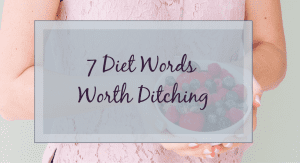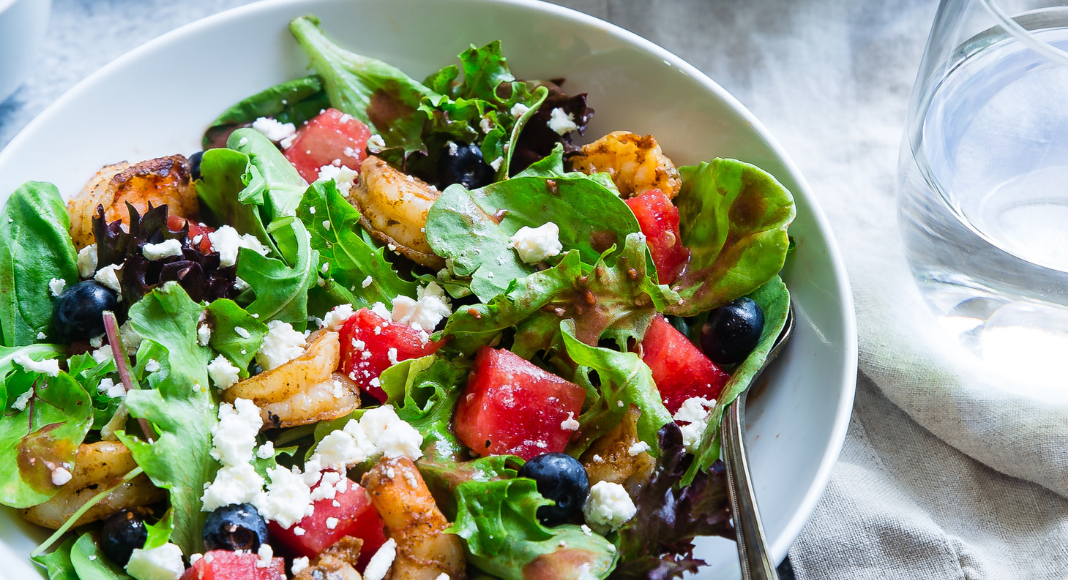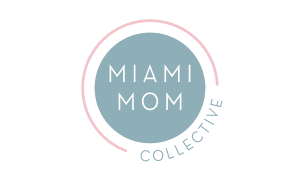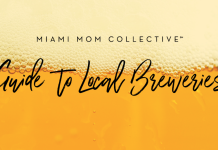We live in a culture obsessed with dieting. Not a day goes by that diet culture doesn’t show up somewhere in my life. Buzzwords like “low-carb”, “detox” or “clean eating challenge” are everywhere.
Many of these words don’t even have a formal definition so that can lead to confusion and fear around what to eat.
If you’d like to break free from dieting and eat in a way that promotes a healthy relationship with food consider removing these words from your vocabulary and your food life.

7 Words This Dietitian Recommends Ditching
Clean Eating
First off, the term “clean eating” doesn’t even have a formal definition so it can lead to confusion as to whether or not you are even doing it “right.” Even more concerning, the word clean implies that if you aren’t eating that way then you or your food are somehow dirty. This is a prime example of how diet culture weaves morality into our food choices when eating is a survival issue, not a moral issue.
Should
Start paying attention to how often you say that you or others should or shouldn’t do something. Then reflect on that. Should is an indicator that we are passing judgment on ourselves or others. “I should be eating this,” “I shouldn’t have eaten that,” “I should exercise more”. When we feel judgment we are actually less likely to take action. Try to replace the word should with would [like to] or could and see how that feels.
Diet
For many people being on a diet feels finite, as if there is an end to it. This can lead to very contrasting food behaviors such as being restrictive because you are “on a diet” or eating to physical discomfort because you’re not on a diet but know you will be again in the future.
Cheat Day
Another diet culture concept that makes eating feel like a moral decision. This just sets us up to feel guilt and shame around our food choices if we find that we are veering from what we “should” do outside of our cheat day. It can really make food feel forbidden and sometimes we want what we can’t have even more.
Good Foods & Bad Foods
Viewing foods as good or bad will certainly strip the pleasure away from eating foods you enjoy. It also inhibits you from becoming an intuitive eater. Intuitive eaters typically derive more pleasure from eating, feel less stressed about food and actually end up eating consistently balanced and properly portioned meals and snacks as a result. So next time you’re tempted to google “good” carbs or “good” fats pause and rethink how powerful those words are.
Detox/Cleanse/Reset
There is no real evidence that many of the hundreds of detoxes/cleanses out there really do anything significant to rid your body of toxins. The best way to keep your body toxin-free is to consistently eat a balanced diet high in fruits and vegetables, sweat, stay rested, and drink water. Simple as that. Many cleanses and detoxes supply an insufficient amount of calories and macronutrients and thus leave you feeling depleted. This sets you up for a rebound food binge.
Low-Carb
This is such a subjective term and one without a formal definition. For some, It’s “x” number of carbs per meal or per day. Sometimes that carb recommendation is reasonable and other times it’s extreme, like with a keto diet. Others use the term to imply they are simply cutting back on how many refined carbs they are eating. Regardless of how it’s being used, low-carb buzz can make us feel like eating carbs is somehow wrong or unhealthy, which just isn’t true.

While these shifts in how we talk about food may seem little, words are powerful. Choose them wisely.

















Wonderful information. I will definitely integrate this immediately when speaking with my clients. Thank you.
Awesome! I’m glad you found the concepts helpful 🙂
Comments are closed.